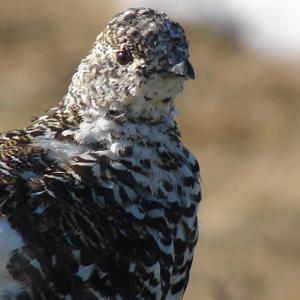NC CASC Webinar Series Webinar: Developing Climate Information for US Fish and Wildlife Service Species Status Assessments Using the Climate Toolbox
Date
Please join us for the NC CASC Webinar Series Webinar on Thursday, February 10, 2022, 11a -12p MST: "Developing Climate Information for US Fish and Wildlife Service Species Status Assessments Using the Climate Toolbox"
Presented by:
Katherine Hegewisch, University of California Merced
John Guinotte, U.S. Fish and Wildlife Service
Alexandra Kasdin, U.S. Fish and Wildlife Service
Aimee Crittendon, U.S. Fish and Wildlife Service
Registration link: Please register in advance for this meeting: https://cuboulder.zoom.us/meeting/register/tJYocuGrqD0rGNHZ0LQcsqwe2067uK-iJOlx
After registering, you will receive a confirmation email containing information about how to join the meeting.
Abstract:
Field biologists from the U.S. Fish and Wildlife Service develop climate information for species status assessments of potentially endangered species using data from ClimateToolbox.org. In this webinar, we will discuss the data needs for these assessments and will provide an overview of the data and tools in the Climate Toolbox with specific examples of how biologists currently utilize the Toolbox for assessments.
About the speakers:
Katherine Hegewisch is a project scientist at the University of California Merced where she works as a climate data provider, analyst and web tool developer. She is the developer of the Climate Toolbox, a series of web tools for visualizing climate data. She received her PhD in physics from Washington State University in 2010.
John Guinotte is a spatial ecologist with the US Fish and Wildlife Service (FWS), in its Ecological Services Program, based out of the legacy region 6 office in Lakewood Colorado. John assists FWS field offices across regions 5 and 7 with analytical, geospatial and statistical needs for listing or delisting species under the Endangered Species Act’s Species Status Assessments. In addition to informing listing decisions, John’s work supports habitat conservation plans, recovery, critical habitat, climate vulnerability and mitigation. John has PhD in Tropical Environmental Studies and Geography from James Cook University in Australia.
Alex Kasdin is a Species Assessment Team Project Manager with the Ecological Services Program of the U.S. Fish and Wildlife Service; she works out of the Regional Office in Lakewood, Colorado. She leads teams of biological experts crafting Species Status Assessments to inform classification decisions under the Endangered Species Act. She also helps decision-makers apply the standards in the Act to determine if species warrant listing. Alex has a Bachelor’s degree in Ecology and Evolutionary Biology and a Master’s in Public Affairs, both from Princeton University.
Aimee Crittendon is a Biologist at the U.S. Fish and Wildlife Service’s Western Colorado Ecological Services Field Office, where her work focuses on federally threatened and endangered species listing and recovery. Before her work with the service, Aimee served as a Peace Corps Volunteer in Botswana and then went on to work for the Wisconsin Department of Natural Resources as an aquatic invasive species response coordinator. Aimee has a masters in Conservation Biology and Watershed Ecology from the University of Wisconsin-Madison.
Previous NC CASC webinar recordings: https://nccasc.colorado.edu/webinars


